Mozambique: Municipal police, INAE incinerate 200 boxes of 'Xivotxongo' in Tete city - Photos
Mozambique: “White angels” revive man on LAM flight
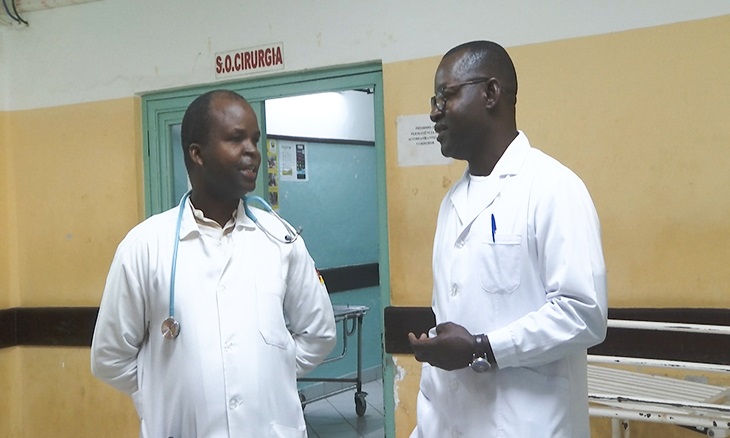
Photo: O País
Two Mozambican doctors revived a patient who suffered a cardiac arrest on a plane on the Maputo-Pemba route, in a drama involving an emergency landing in Nampula.
In the typical voice heard over aeroplane loudspeakers, young captain Norton Nhantumbo had announced to his passengers that the aircraft (Boeing 737/700) was flying over the airspace of the city of Quelimane. It was flight TM172 on April 24, 2024. The flight had left Maputo and was headed to the city of Pemba, and the trip so far was pleasant.
Everything changed when, at around 1:00 p.m., a passenger starts to convulse. He bit his tongue and went into cardiac arrest. Panic gripped the passengers, especially those in nearby seats.
Cabin attendants call the plane’s telephone and inform the flight crew about what was happening and wait for an immediate decision to be made.
“From the moment we became aware that a medical emergency was occurring on board, we prepared for the different possible scenarios and quickly studied the options we had. The final action to be taken will always depend on some factors: the evolution of the passenger’s condition, the position in which we are in relation to the flight. The objective is for the passenger to have the best possible medical assistance, as quickly as possible,” the captain explained exclusively to ‘O País’.
The plane was flying at an altitude of 11,900 meters (almost 12 km). Commander Norton was assisted by co-pilot Djair Faquirá; the cabin manager was Manuel Chitata and flight attendants Amélia da Cruz and Nilza Balate. Everyone had to make a concerted effort.
“The cabin crew did everything they could to quickly get the passenger the help he needed,” says the captain, but, in the middle of this emergency operation, the idea arose to ask if there were health professionals among the passengers.
“The fact of having doctors on board is reassuring, because, although our colleagues (cabin crew) are trained in first aid, help from healthcare professionals is always welcome, it makes us more comfortable and sure of that the passenger will have the best possible assistance, within the specific conditions of a flight,” Commander Norton detailed.
It is at this moment that two new characters enter the scene: gynecologist-obstetrician Dinis Viegas Manuel and internist Calima Muagerene, who were ready to help revive the passenger who has become a patient.
“When they asked us for help, my colleague and I said ‘Let’s help the patient’. He had a classic cardiorespiratory arrest,” explains Dr. Calima. “We had to open his airways because he had bitten his tongue and as a result closed his airways, so he couldn’t breathe,” colleague Dr. Dinis added.
“We had to place him in a lateral position while his colleague began the cardiac massage procedures. I went with the cabin crew, and we identified the emergency box and identified some medicines used for resuscitation, which we did.”
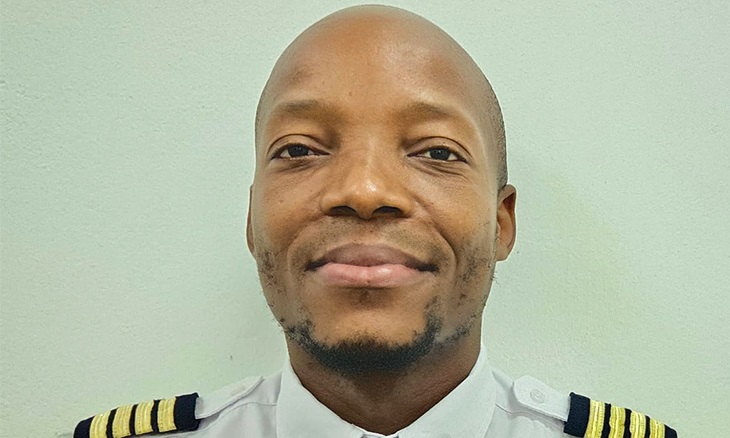
The operation lasted around two minutes – time that, if lost, could have resulted in death. The patient gained consciousness, but remained aggressive, so Captain Norton decided to take make an emergency landing at Nampula airport, at 1:28 pm, so that the patient could receive specialised assistance
This took place under the care of Doctor Frederico, a neurologist assigned to the Nampula Central Hospital. In fact, the two “angels on the plane” are also assigned to this health unit and were going to reinforce the team at the Pemba Provincial Hospital.
The patient is a university professor who has a history of epilepsy attacks.
With everything under control, Commander Nhantumbo, a veteran of 11 years in civil aviation, decided to upgrade the two doctors from economy to executive class for the Nampula to Pemba leg.
“The flight captain ended up making this decision to move me and my colleague from economy to business class, and that’s what happened,” noted the internist, laughing. Not only did he finish the trip in the best seats on the plane; it was also a happy ending that lived up to the Ministry of Health’s slogan: “Our Greatest Value Is Life!”.


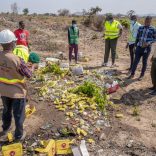
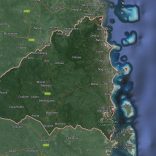
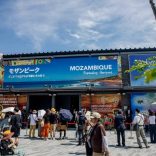


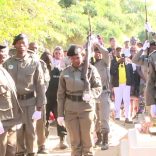




Leave a Reply
Be the First to Comment!
You must be logged in to post a comment.
You must be logged in to post a comment.